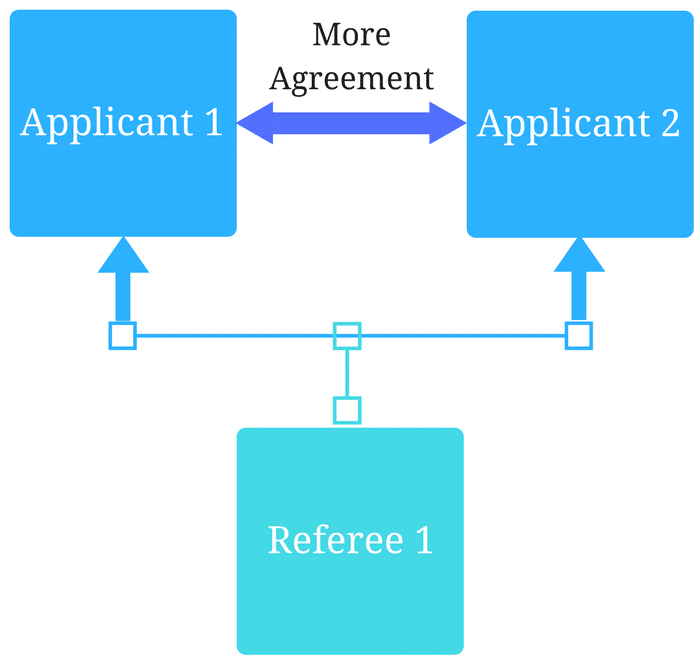Navigating continuous quality improvement (CQI) for MedEd in a COVID-19 era: 4 practical recommendations

October 22, 2020
The MedEd community is up against incredible challenges navigating the COVID-19 pandemic and its impact on medical schools and teaching hospitals.
Since the onset of the pandemic, we have worked to support, assist, and learn alongside our customers as they have had to pivot, update, and shift quickly to meet evolving demands and needs. In our work together, we have uncovered some notable practices that can assist MedEd institutions in addressing continuous quality improvement (CQI) despite, and perhaps because of, the pandemic.
Tracking alternate clinical experiences accurately in logs
Many learners have had their clinical skills training and rotations transitioned to virtual experiences. The LCME’s Guidance on Medical Students’ Participation in Direct Patient Contact Activities advises MedEd institutions to start tracking and logging these added alternate experiences for learners to help ensure they are completing the requirements for their clerkship patient experiences.
Review and adjust learner logbooks to include the full list of alternate experiences. Making these additions will help prepare for upcoming LCME accreditation visits where attesting with documentation that learners completed requirements despite the impacts and transitions of the pandemic will be required.
In addition to making the updates to your log lists of procedures and clinical experiences to include simulation and alternate experiences, delivering regular updates to learners and clerkship directors on progression tracking towards requirements can offer additional accountability during this time of upheaval.
Take steps toward a competency based approach
A recent NEJM article argues “a developmental assessment of trainees is needed, and the ACGME’s specialty-specific milestones provide a useful framework for such evaluations.” If CBME is a new approach for your program, tagging assessments that track performance of learners on key competencies or entrustable professional activities can offer additional insight to learner performance and trajectory in a crucial time for medical education.
Start small. Even if your medical school or training program hasn’t undertaken a fully implemented competency based MedEd approach, adding a list of key competencies or EPAs relevant to your existing assessments and tagging those elements can be a first step. Surfacing the elements against key competencies can open up dynamic reports for your program and learners showing trajectory and progress.
Adjust your curriculum map
Mapping your MedEd Institution’s curriculum is an accreditation requirement for the LCME. Reporting to the AAMC’s Curriculum Inventory is voluntary, but allows MedEd institutions to review benchmarked data against other curricula. Documenting the changes your curriculum has undergone over the last year as early as possible will assist tremendously when working to deliver your 2020 CIR report in the fall of 2021.
Indicating immediate changes that have occurred due to COVID-19 can start with updates to your keywords mapping list. The AAMC recommends using the following keywords:
- “COVID-19 Remote” for a session or event that was delivered remotely
- “COVID-19 Altered” for a session or event that altered in another way due to COVID-19. Some suggestions of ways they may have been altered are:
- some of the learning objectives originally planned for a session were delayed due to COVID-19, so for this year, this session’s learning content will look different compared to last year
- fewer students were scheduled at the Simulation Center to comply with social distancing, so the schedule and room usage for this simulation session was different compared to last year
Take action towards CQI by addressing your data governance strategy
Understanding the sources of your data for your school or program as a big picture can be a powerful first step. Seeing the full scope of data available for review and giving yourself the ability to filter down your data empowers action. For example, having a view of learner grade performance across rotations and where clinical skills occurred (even as alternate experiences) can help confirm your curriculum experiences are equivalent and on track across sites. An overarching view ongoing with current data can help surface any gaps or imbalances as they arise and empower action.
Our decision support data sources worksheet may help with some of the added administrative stress and resource burden caused by the ongoing pandemic. Assess where your data comes from, easily view and use that data and take some immediate steps to improve decision support and CQI.
In summary
As we’ve experienced partnering with MedEd institutions over the last year, navigating the changes of COVID-19 and supporting the administrative needs of programs doesn’t have to be overwhelming.
- Ensure all alternate experiences are included for tracking in the notes section of the logbook
- Begin tagging assessment forms to key competencies or entrustable professional activities to track learner progress in new ways
- Add additional keywords and alternate experience tags to your curriculum map as soon as possible
- Consider all of your data sources, how they’re available to you, and how you can start to surface the power of your data for action
Taking small, manageable steps can help ensure continuous quality improvement processes are ongoing and feasible actions can be taken even in the midst of pandemic upheaval. Considering these small steps now can help ensure your future accreditation site visit reflects the data, performance, and success for your learners and processes.
Related Articles

How interviews could be misleading your admissions...
Most schools consider the interview an important portion of their admissions process, hence a considerable…
Reference letters in academic admissions: useful o...
Because of the lack of innovation, there are often few opportunities to examine current legacy…
